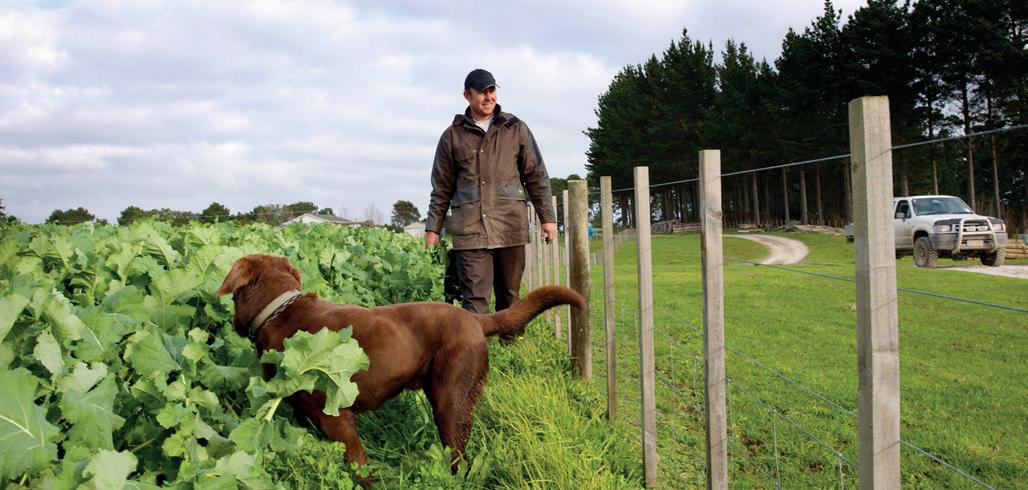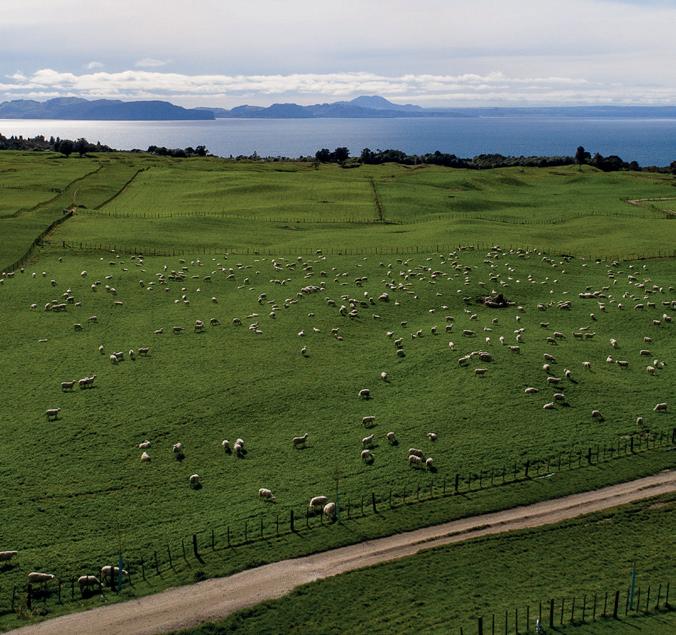
3 minute read
How to eat the elephant in the room
Not known for my patience, I regularly remind myself that if you want to go fast, go alone but if you want to go far, go together. This principle is relevant for many as we move through significant change in our food and fibre sector.
Thought leadership from Farmlands’ Head of Sustainability and Land Use, Katie Vickers, on the need for courage in reducing on-farm carbon emissions.
New Zealand is known for its natural environment and considering we farm a large portion of our natural capital, our future is in our hands. As a small country, our superpower is being able to innovate, be creative and drive for continuous improvement. The opportunity for New Zealand to lead the world in lowering agricultural emissions is there, but it will take courage and working together. Farmers and growers will be at the centre of this transformational change. Farmers are tenacious, with strong problem-solving skills and an ability to think outside the box. A change in mindset is critical to being able to operate in a different space. A willingness to step outside the norm takes courage and commitment¹. Working towards carbon zero takes courage. For Farmlands, that has meant measuring, managing and mitigating our carbon emissions and also understanding the part we can play in supporting a shift to sustainable farming,

| Farmers are tenacious, with strong problem-solving skills and an ability to think outside the box.
all the while driven by a deep desire to do the right thing. Courage on-farm could be asking your Farmlands Technical Field Officer, Technical Advisor or Agronomist an extra question as they give advice on better understanding your biological system, or it could be explaining to your neighbours what you are doing to help protect your waterways or why you are planting productive land with natives. The latter may feel like a cost on the balance sheet, but the return is authenticity in your Farm Environmental Plan, increased on-farm biodiversity, carbon sequestration and water quality. Not to mention the long-term benefit of leaving the land in better shape for future generations. Seeking advice for environmental support and improvements in productivity and efficiency is important as solutions vary considerably depending on individual needs and they must be based on the goals of the farming system. I often hear that the increasing compliance and regulation costs hitting our farmers and growers mean they can’t carry on farming. I want to be courageous and challenge that. The idea that purpose and pay don’t align is a misconception. We know we need to support each other to be curious and to learn from others. Cultivating courage changes culture and drives exceptional practice on-farm. If we have transparency in what we are doing on-farm it enables us to have a bulletproof, meaningful story to sell on the global stage. A report from Our Land and Water states that changing practices onfarm to meet new water and climate regulations can be turned into a marketing advantage in New Zealand’s food export markets and has the potential to significantly increase farm profitability. Research into consumers’ willingness to pay shows consumers of our food exports will pay a premium for sustainability and other attributes. This can increase returns to domestic producers and offset the costs of providing these attributes². Farmlands and our Partners aspire to support you and your courageous decisions behind the farm gate. We are working on getting the right inputs to help increase biodiversity on-farm and new Partners to help support farm environmental planning. Our focus is on soil health and supporting biological life in our farming systems. My message? Eat the elephant one bite at a time, work together and keep striving for excellence. It’s individuals and communities that change the world.

For more information on Farmlands’ sustainability journey, go to www. farmlands.co.nz/sustainability
1.Masters, N. (2019). For the Love of Soil. 2.Ourlandandwater.nz. (2021). [online] Available at: <https://ourlandandwater.nz/wp-content/uploads/2021/05/OLWResearchFindingsBrief_ Consumers-WTP.pdf> [Accessed 24 May 2021].










